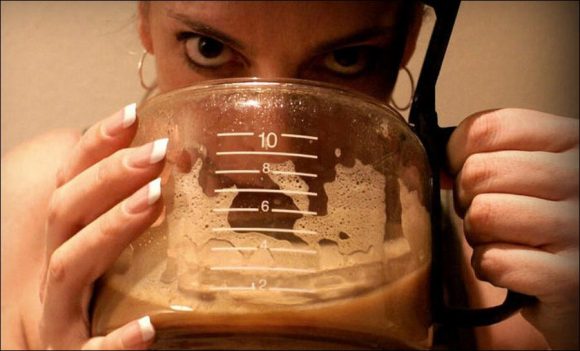Caffeine addiction is the excessive and/or harmful use of caffeine over a period of time, which has negative effects on your health, social interactions, or other areas of your life. As caffeine is a widely accepted and used drug, many people don’t believe caffeine can be addictive.
While most caffeine users feel they enjoy many of the effects of caffeine, like a good “morning boost,” they may not be aware of some of the negative effects the drug is having, such as disrupted sleep, irritability, and anxiety. Many people, for example, get into a vicious cycle of drinking coffee to increase energy, only to find themselves both fatigued and unable to relax at bedtime.
Some people experience significant problems as a result of their caffeine use, have difficulty coping without caffeine, and experience other unpleasant side effects as a result. There have even been isolated cases of caffeine overdose.
Caffeine is one of the most widely used addictive substances, and it is heavily marketed to adults, teens, and even children. While coffee is probably the most frequently used source of caffeine, it is also present in many common foods and drinks, so your caffeine intake might be higher than you realize.
Caffeine intoxication is recognized in the DSM-5, the manual used by clinicians to classify and diagnose mental health concerns, and caffeine use disorder is identified as requiring further study.
Caffeine intoxication and caffeine withdrawal can both be very unpleasant, physically and psychologically, but either can easily be mistaken for a variety of other conditions. For example, people who are intoxicated with caffeine can exhibit similar symptoms as people with attention deficit disorders; caffeine withdrawal shares similar symptoms with mood disorders.
Gradually reducing your daily caffeine intake by increasingly mixing caffeinated beverages with non-caffeinated drinks is the best way to quit caffeine without withdrawal symptoms.
Symptoms of Caffeine Addiction
As caffeine is a stimulant drug, caffeine intoxication causes a cluster of symptoms associated with stimulation of the brain and nervous system. While caffeine users enjoy the increased energy and alertness that caffeine gives them, unpleasant symptoms experienced by many consumers, especially those who are addicted, include:
Restlessness
Nervousness
Excitement
Difficulty sleeping
Agitation
Muscle twitching
Rambling flow of thoughts and speech
Flushed face
Increased heart rate
Stomach upset
Increased urination
Symptoms of Caffeine Withdrawal
Caffeine withdrawal typically causes a rebound effect, producing symptoms that are the opposite of the effects of intoxication. This effect can be profound in those who are addicted to caffeine.
The symptom most often noticed by people going through caffeine withdrawal is a severe, intense caffeine withdrawal headache. When coming off caffeine, people often feel very tired and even drowsy. They may have difficulty concentrating, and feel depressed or irritable. Occasionally, people withdrawing from caffeine also experience flu-like symptoms, such as nausea, vomiting, muscle pain, or stiffness.
As with all addictions, the pattern of intoxication and withdrawal can mask emotional difficulties that are avoided by seeking out the pleasurable effects of caffeine. Lack of energy, lack of motivation, and depression may underlie caffeine addiction. It can also overlap with work addiction, as some people use the stimulating effects of caffeine both to increase energy for and interest in the mental and physical activities associated with their jobs. Similarly, caffeine addiction can mask the avoidance of more fulfilling activities and relationships.
How caffeine addiction and other disorders
Again, the stimulating effects of caffeine can cause physical symptoms and behaviors that can look and feel like, and therefore be easily confused with, other disorders. Therefore, it is important to let your doctor or psychologist know how much caffeine you are consuming, and how frequently you are doing so if you are being assessed for any condition.
For example, caffeine intoxication produces symptoms that can easily be confused with anxiety disorders, such as panic attacks. Using too much caffeine can also worsen symptoms of anxiety disorders in people who are affected, intensifying feelings of worry; increasing racing thoughts; making it difficult to quiet the mind; increasing agitation and shakiness; and preventing relaxation and quality (or any) sleep. However, as with other addictions, you might experience your use of caffeine as calming and temporarily relieving of anxiety. You may feel and even believe it helps you cope.
Other health concerns
Manic episodes
Panic disorder
Generalized anxiety disorder
Sleep disorder
Migraine and other headaches
Viral illnesses
Sinus conditions
Intoxication from other substances (amphetamines, sedatives, hypnotics)
Medication-induced side effects, such as akathisia
It can also be mistaken for, and worsen symptoms of, withdrawal from other substances, such as amphetamines and cocaine. Stimulant drugs are often cut with caffeine, increasingly the likelihood that caffeine withdrawal is involved in withdrawal from these drugs.
When a disorder is induced by a substance, although it is triggered by substance use, it does meet the criteria for the disorder, rather than simply being an effect of intoxication or withdrawal. Caffeine-induced disorders include caffeine-induced anxiety disorder and caffeine-induced sleep disorder.
Next: How caffeine can affect your health.
Views: 439



